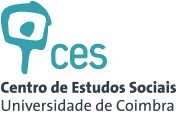Apresentação
COORDINATION: Silvia Rodríguez Maeso
Human rights have become one of the most important fields of academic and juridical-political-cultural discourses in recent decades. The emergence of new forms of international and national power relations has been accompanied by the quest for related adjustments in the field of human rights. In this context, international human rights norms and discourses have been appropriated, transformed and/or contested by social groups, governments, intergovernmental organizations and even corporations in different regional, national and local contexts.
The diversified range of engagement with human rights illustrates their potential as both a hermeneutic and a political instrument. In this context, there is a critical need for a constructive, intercultural dialogue across different regions that takes alternative knowledge and values into account.
The study of human rights requires interdisciplinary, intercultural and transnational approaches. Cutting-edge post-graduate training in the history, internationalization, politics, and legalization of human rights as well as the cultural struggles over human rights is not only timely but relevant for the scientific and pedagogical agenda of a research centre, like CES, which seeks to promote critical, counter-hegemonic thinking and social change.
Since its inception, CES has emphasized an interdisciplinary research approach, developing numerous projects and social interventions within the field of human rights. Most – if not all – of the Research Groups and Observatories at CES have studied topics relating to human rights, including access to justice, the prison system, labour rights, children’s rights, women’s rights, indigenous rights, disabled people’s rights, legal pluralism, immigration policies, different forms of violence and its representation, racism, peace, the right to the city, the right to memory, LGBT (lesbian, gay, bisexual, transgender) rights, and the relationship between human rights and development.
Over the years, CES has earned wide external recognition for its distinctive perspectives in the crosscutting issues of power relations (including human rights) resulting from colonialism, capitalism and patriarchy and for its promotion of constructive dialogue across different disciplines and regions of the world. Its research projects have also enabled CES to create a number of networks and partnerships with universities, research centers, governmental and non-governmental organizations in Africa, Asia, Europe and Latin America. It is time to bring together the researchers already studying human rights at CES and the (inter)national research exchanges and synergies promoted by CES’ established networks and partnerships to take advantage of an expanding scientific field that still lacks graduate and interdisciplinary programs at the Ph.D. level.
In order to explore human rights in contemporary societies a multitude of sites of knowledge production must be necessarily considered. Our belief in the importance of strengthening intersectionality geared us to conceive this PhD programme as a joint endeavour of CES and the Institute for Interdisciplinary Research (IIIUC). The interdisciplinary mission that characterizes the IIIUC fits into the scope and approach of this PhD program, offering top quality expertise and diversified experience across a range of areas, both of which (experience and expertise) will be inspirational for future students and current staff.
The Doctoral Progamme in Human Rights in Contemporary Societies started in 2013-2014 and was accredited by the Agência para a Avaliação e Acreditação do Ensino Superior (A3ES) in 2020 for 6 years. The Programme is offered on a biennial basis, opening therefore a new edition every two years. The 2013/2014, 2015/2016 and 2017/18 edition's were funded by FCT. This Programme is lectured in English only (classes, essays, thesis and defense).


There are four main objectives of this PhD programme. First, it aims to develop non-positivist and multidisciplinary academic excellence in the field of human rights. Secondly, the programme introduces students to various perspectives to the history, theories, politics, institutions and practices of human rights in different contexts. It seeks to provide students with a cutting-edge curriculum on human rights. Thirdly, it seeks to promote methodological perspectives that combine theoretical and practical understandings of human rights with critical, intercultural and transformative perspectives. Finally, it is set to train students to contribute towards the promotion and protection of human rights in various contexts.
Students who have gone through the Ph.D. programme will:
1. have thorough knowledge of the history, theories, politics, institutions and practices of human rights, as well as economic, social and cultural inhibiting factors;
2. be equipped with theoretical, practical and methodological tools to evaluate human rights situations from various perspectives in different contexts;
3. understand and engage in public controversy which tackle human rights issues arising at the local, national, regional and global levels;
4. develop interdisciplinary research skills in the field of human rights in particular and the social sciences and humanities in general; and
5. have the capabilities to train other interested persons on how to make use of, defend and/or conduct research in human rights.

O programa HRICS permitiu-me abordar questões interdisciplinares com criatividade num ambiente que promove desenvolvimento intelectual. A qualidade do programa e o apoio que recebi foram extraordinários.
Daniela Ayoub, em tese (Portugal)

"O HRICS mudou substancialmente a minha perceção sobre as nações, a sociedade e as relações de poder entre o Ocidente e o Sul. É teoricamente estimulante, inovador e oferece, de forma prática, diversos caminhos para o desenvolvimento profissional e pessoal. O programa enriqueceu o meu potencial académico e a minha vida profissional."
Amit Kumar Singh, doutorado (Índia)

